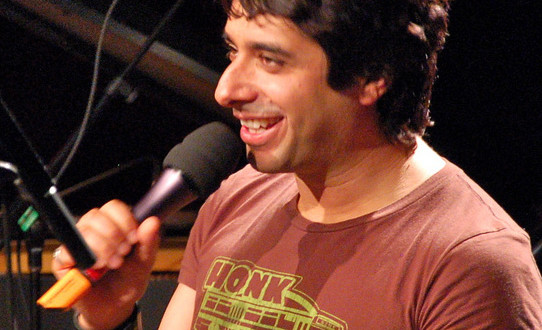The Ghomeshi trial has exposed a reality of the criminal justice system which is the bane of every criminal defence lawyer’s existence. In most ‘domestics’ — as allegations of sexual or physical assault between family members or romantic partners are called in the system—the current modus operandi of police and Crown prosecutors is “zero tolerance.” This means, practically, that police tend to lay charges immediately after taking a statement from (in 99% of cases) a woman who alleges violence or sexual assault, with little investigation or even discretion in their decision of whether or not to proceed. Charges are laid, and individual accused are thrown into the glut of the courts to sort things out.
To be sure, there are very good historical reasons for this. Up until the 1970s, there was an institutional reluctance to believe women who complained of being sexually assaulted or beaten, especially within the context of marriage or dating relationships. Police and prosecutors demanded corroborating proof for such allegations, often in the form of a ‘hue and cry’ – some third party’s observation of the victimized woman’s emotional outburst, and preferably some blood or physical injuries as well. It would be hubristic and inaccurate to say that we’ve evolved past sexist stereotypes about the way ‘typical’ victims and offenders behave. But the pendulum has surely swung too far in the other direction when officers and prosecutors find themselves acting without diligence or discretion in laying charges.
Indeed, as is now the stuff of legend, officers gave the Ghomeshi investigation such short shrift that they failed to elicit huge chunks of pertinent narrative: years’ worth’ of post-offence come-hither e-mails from Lucy DeCoutere, undisclosed romantic and sexual encounters between complainants and accused and an extensive post-disclosure correspondence between DeCoutere and the third complainant. This is unacceptable—proper investigations do not consist in police passively recording statements from complainants but rather pro-actively assessing their narratives for gaps, internal and external inconsistencies, and discerning when there is more that has been left unsaid.
The irony? If the communications had been elicited by the police investigation, Ghomeshi’s counsel Marie Henein would have had considerably less leverage for undermining the State’s case against her client, which turned entirely on the credibility and reliability of the two complainants. This is a point that has been mostly lost in the cacophony of commentary about the messiness of human experience and unpredictable responses to sexual assault or violence. The primary relevance of the undisclosed messages was not that they were necessarily inconsistent with the assaults having occurred, but that the complainants lied, repeatedly, to the cops, in court, to the media, and under oath. A criminal trial’s objective is not to illuminate human complexities but to marshal evidence and identify whether or not the state has met its burden of proof beyond a reasonable doubt. A witness with a demonstrated track record of lying under oath is weak gruel indeed.
Ghomeshi was able to level the playing field with sophisticated counsel who obtained the thousands of emails between complainants and from complainants to Ghomeshi. It’s a puzzle why Crown prosecutors were blindsided by them: given that the e-mails were obtained by a third-party records application, they would have been able to review them and either missed the point or strategically bombed in not leading them in its case in chief, getting out in front of the defence. Ghomeshi also had the sheer good fortune of having preserved a twelve-year old handwritten love note.
It’s important to note that most people who get snagged in this system find themselves with no corresponding ability to resist. Defence lawyers are all too aware of the real jeopardy faced by individuals who, though factually innocent, find themselves charged upon little more than a bare assertion. The immediate consequences, before formal court proceedings are initiated and despite the presumption of innocence can be crushing: a night spent in custody awaiting bail, immediate court orders to stay away from one’s home and forbidden contact with spouses and kids. The pressure to capitulate to the system and plead guilty, agree to a peace bond, or agree to diversion programs which involve onerous court supervision and attendance is enormous, and often irresistible for those without counsel. These are real, not theoretical problems. As defence counsel, I was exposed to complainants who fabricated allegations in order to gain leverage in real estate negotiations over a matrimonial home, family law proceedings, or just out of sheer spite.
The fallout from the Ghomeshi trial has involved many calling for a reform in how sexual assault cases are tried, including but not limited to prohibiting defence counsel to cross-examine on sexual history, even with the accused, preventing ‘trial by ambush’ by requiring the defence to disclose all of their evidence to the Crown in advance, requiring the accused to testify in his own defence to even out the putative ‘inequality’ of alleged victims having to tell their story while the accused can stay silent, and even a relaxation of the centuries-old and weathered burden of reasonable doubt.
It’s necessary, then, to reiterate the following first principles: a criminal trial is a search for truth via the adversarial process in which evidence is presented and tested. The accused is presumed to be innocent until proven guilty: this is not a platitude, but rather an important prerequisite to the State’s most crushing power to restrict liberty: its power to incarcerate. The State has the burden of proving in all cases beyond a reasonable doubt that the accused willingly violated the community’s laws in order to exercise this power. This premise cannot lose any of its rigour in cases of sexual violence; in either case, the stakes are and threat to liberty are equally high. Just as the same underlying principles ought to apply to a homicide investigation as to a sexual assault investigation, so the bedrock principles of the criminal justice system remain as relevant, crucial and inalienable in a sexual assault trial.
**
Joanna Baron is a former criminal defence lawyer and Court of Appeal for Ontario law clerk. She is currently the director of the Runnymede Society.
 Advocates for the Rule of Law
Advocates for the Rule of Law




Yeah! The reality of false accusations, for whatever motivation! Greed, vengeance, spite, hate. …
Fabricated allegations are a lot more common than the “victims advocates” want to admit. Not only men, but women also are being falsely accused.
In the arena of sexual assaults, the suspects are presumed guilty, from the onset and by everyone.
This has become the modern witch hunt, where the wrongly accused do not stand a chance.
To make things worse, those accusers never get charged with public mischief.